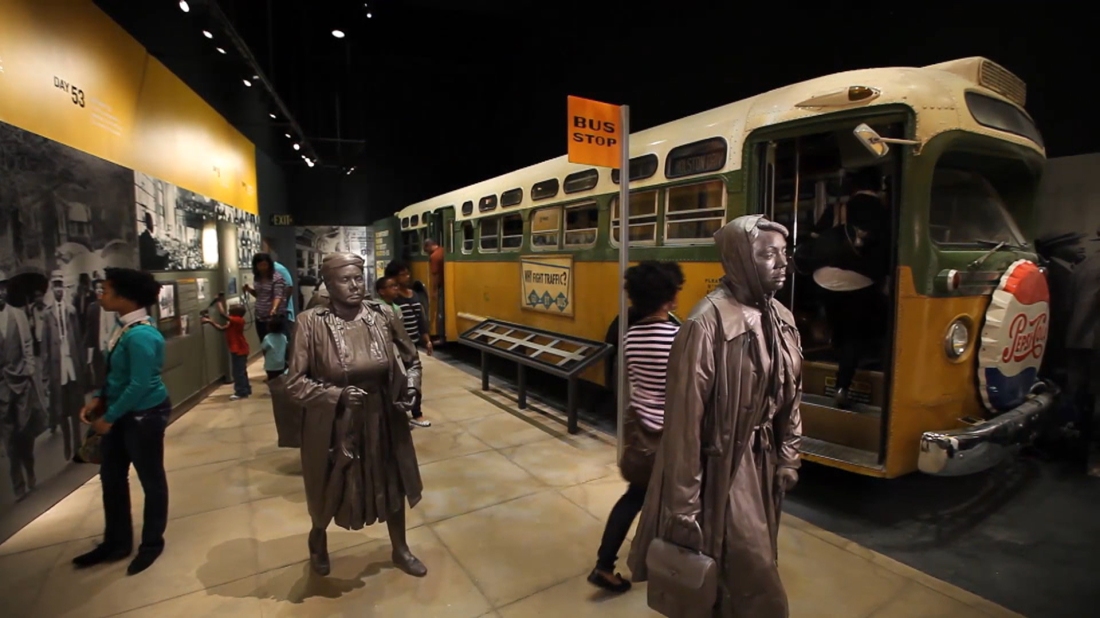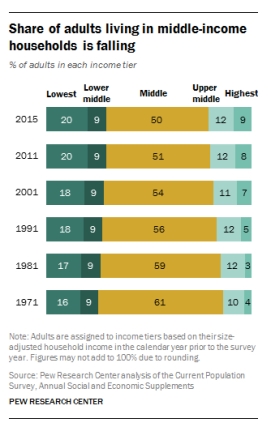Texts: Zephaniah 3:14-20 + Isaiah 12:2-6 + Philippians 4:4-7 + Luke 3:7-18
The Gospel of Luke says, “The people were filled with expectation,” (Luke 3:15) and I get it. To live in Chicago in these weeks after the Laquan McDonald video was released, weeks of nightly protests calling for the resignations of our top elected officials; to live in the United States, where we are still a year out from election day, and already the campaign rhetoric has reached repulsively new lows; I think I can understand how and why the people were filled with expectation.
But expectation is an odd thing. We experience it as a kind of urgent longing for things to be set right, even when the reality we long for is something we’ve never seen. Which begs the question, where does this longing come from? How do we come to expect something we’ve never experienced?
Over Thanksgiving Kerry and I, his mom and my folks, my sister Tara and her boyfriend, all flew down to Mississippi for a big family dinner. It was the first time since the wedding that both sides of the family had been together, and this time we had days instead of hours, so that we could begin to really relax and get to know one another. We actually flew into Memphis and spent the day there before driving over to New Albany in Mississippi.
The last time Kerry and I had been to Memphis was two years ago, and we visited the National Civil Rights Museum at the Lorraine Hotel, where the Rev. Dr. Martin Luther King was shot and killed. We were really impressed with the museum then, and knew they’d made upgrades since, so we were eager to share the experience with our families.

In retrospect, I’ll admit that there was something a little “on the nose” about taking our inter-racial, gay family to the Civil Rights museum on the front end of a weekend of cultural exchanges. As we paid for our tickets and entered the museum’s self-guided walking tour, we were immediately immersed in the simulated soundtrack of enslaved Africans on the ships that carried them across the Middle Passage. Happy Thanksgiving.
But as we continued along the tour, stopping for short video clips, or to read the stories, or examine the photographs of the heroes of the movement, young people, I could feel a growing sense of awe and pride welling up inside of me. Awe and pride that this generation, who are now our elders, whose wisdom and courage is still accessible to us, were filled with the expectation that the world was going to be different, was going to be made different, by their actions.
They’d never seen it. They’d been raised in a Jim Crow society, oppressed by an interlocking system of official laws and illegal, but sanctioned, violence — but still they manifested an expectation that the future would be radically different.
Where did that hopeful expectation come from? I have to believe it came from their faith. I just don’t think you can spend your childhood hearing the words of the prophets,
I will remove disaster from you … I will deal with all your oppressors … I will save the lame and gather the outcast, and I will change their shame into praise and renown in all the earth. (Zeph. 3:18-19)
and not come to realize that the life God desires for us, and the life we’ve been asked to accept are radically different propositions.
When the prophet John, the herald of God’s messiah, commands the people who’d fled into the wilderness to escape the violence and corruption of the city to “bear fruits worthy of repentance,” he isn’t suggesting that they produce some kind of guilty emotional state. He doesn’t want them to beat their breasts and bemoan how horrible things have finally become. He is goading them, taunting them, into taking that feeling of repentance, that feeling that things need to change, that feeling that the world-as-it-is does not reflect the world-as-it-should-and-could be, and to produce something, build something, organize something worthy of that feeling.
 Earlier this week the Pew Research Center released a new study that suggests that the United States has finally reached a tipping point in the consolidation of wealth. In 1971 two out of three American families lived in the middle class. This year, for the first time in decades, slightly less than half of American families are in the middle class. And while this does mean that there are more families living with wealth, it also means that there are more and more American families slipping into poverty.
Earlier this week the Pew Research Center released a new study that suggests that the United States has finally reached a tipping point in the consolidation of wealth. In 1971 two out of three American families lived in the middle class. This year, for the first time in decades, slightly less than half of American families are in the middle class. And while this does mean that there are more families living with wealth, it also means that there are more and more American families slipping into poverty.
At a time when poverty is on the rise, it seems especially immoral that here in Chicago, just a mile or so away from where we worship this morning, there are more than 700 units of perfectly good housing at Lathrop Homes that have sat vacant for over a decade as the Chicago Housing Authority has accumulated a $500 million surplus. At a time when our public schools are under-funded and being closed, the CHA has a well-funded pension, and is making plans to turn public land over to private developers to create market-rate, high-rise towers along the river.
Residents of Lathrop Homes have been moved out of their homes, displaced from their communities, and promised that they would have the right to return once the city replaced those units. Some of them have been waiting 15 years for the city to keep the promise.
And we who have been raised on the words of the prophet Zephaniah hear with new ears this Advent season his assurance that God too makes promises — and keeps them.
“At that time I will bring you home, at the time when I gather you; for I will make you renowned and praised among all the peoples of the earth, when I restore your fortunes before your eyes.” (Zeph. 3:20)
And this is why, for the third year in a row, standing beside our sisters and brothers in the Logan Square Ecumenical Alliance we will be marching this afternoon in the Las Posadas for Public Housing. Together with residents of Lathrop Homes, members of the Logan Square Neighborhood Association, and activists from the Chicago Housing Initiative, we will be making our faith in God’s future public. We will be, as Rabbi Heschel used to say, “praying with our feet.” We will be bearing fruits worthy of our repentance.
I can imagine a moment fifty years from now, that families will gather for holiday dinners around tables in neighborhoods free of crime and filled with prosperity. A community in which neighbors do not fear each other. A city in which the government enjoys the trust of the people. A nation in which mothers and fathers are not heard mourning in the streets for their dead children. A world where the air is clean and the water is too, and people of all faiths move safely across dissolving borders to celebrate the beginning of a new year.
When that day comes, the infants on your laps this morning will be parents, maybe grandparents, and they will take their children to the museum so that they can learn how the world became such a joyful place. And I firmly believe that it will be your names and your faces they study.
“The movement” is just another word for “Advent.” They both signify our journey toward the irresistible reign of God, always coming toward us. You can trust that, you can even expect it, God’s future being built in us.
Amen.
+++
For coverage of the Logan Square Ecumenical Alliance 3rd Annual “Las Posadas for Public Housing at Lathrop Homes,” which took place on Sunday, December 13, 2015 see the following article in the Chicago Tribune, click here.